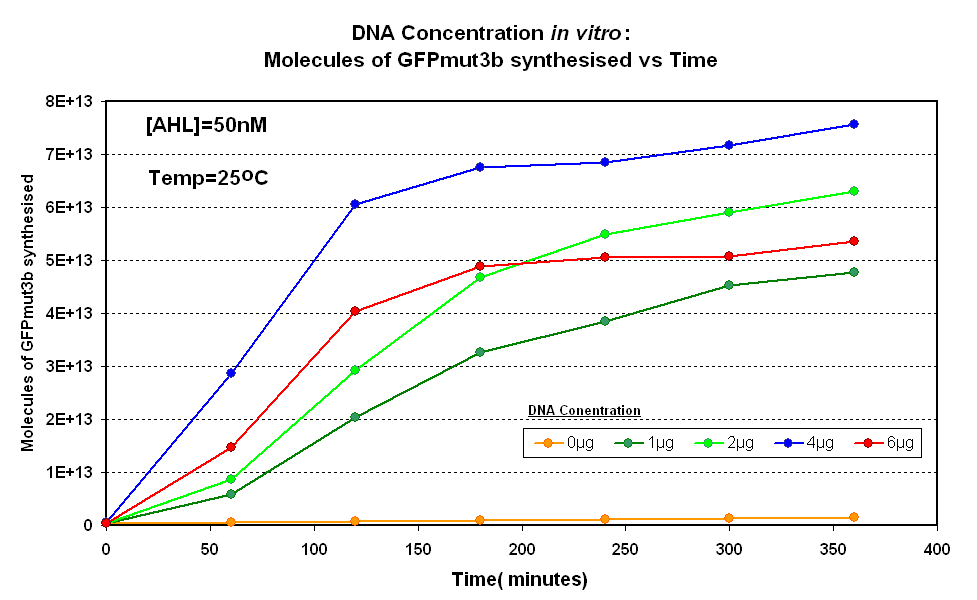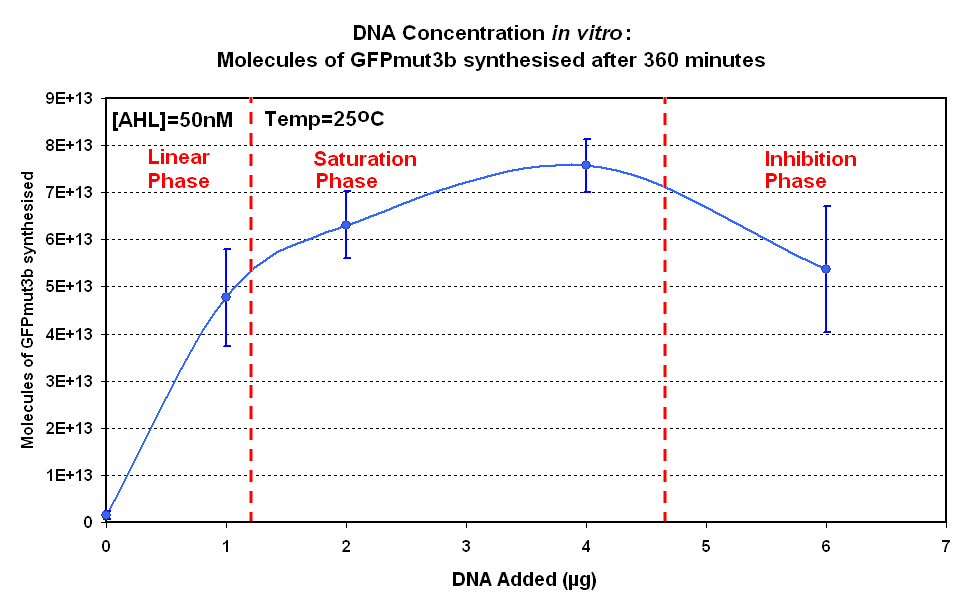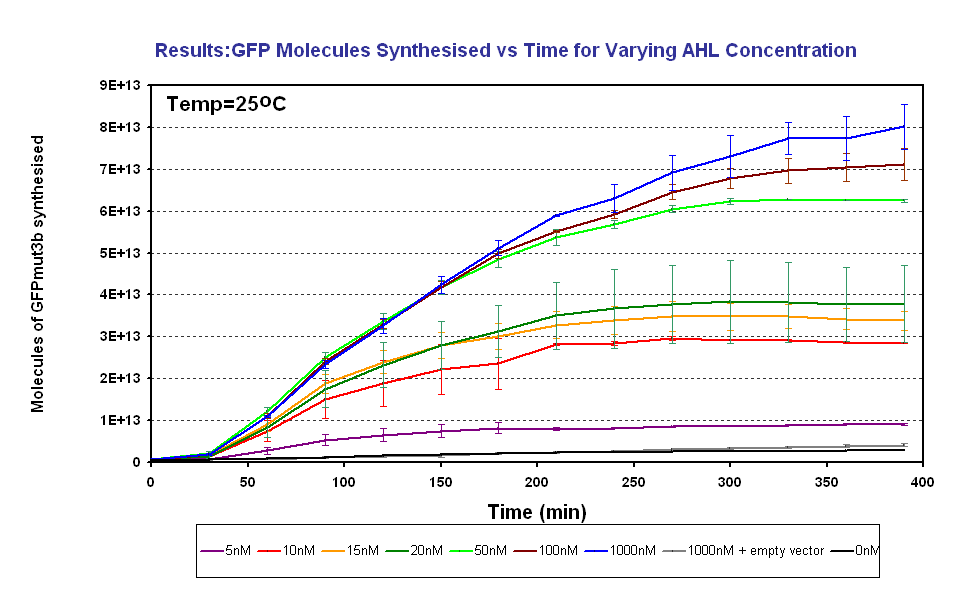Imperial/Infector Detector/Testing
From 2007.igem.org
m |
m |
||
| Line 48: | Line 48: | ||
===Testing AHL Range=== | ===Testing AHL Range=== | ||
{|align="center" | {|align="center" | ||
| - | |[[Image:GFPMolecule syn ID2 Final.PNG|thumb|center|500px|Click for full results and protocols can be found on the links [[Imperial/Wet Lab/Results/ID3.1| results]] and [[Imperial/Wet_Lab/Protocols/ID3.1|protocol]] pages. | + | |[[Image:GFPMolecule syn ID2 Final.PNG|thumb|center|500px|Figure 1.3 a graph of GFPmut3b molcules synthesised vs AHL concentrations. The Testing was carried out for the 4µg of DNA. Click for full results and protocols can be found on the links [[Imperial/Wet Lab/Results/ID3.1| results]] and [[Imperial/Wet_Lab/Protocols/ID3.1|protocol]] pages. |
]] | ]] | ||
|- | |- | ||
Revision as of 14:13, 26 October 2007

Infector Detector: Testing
Summary
The key results of the testing were:
- The optimum DNA concentration for [http://partsregistry.org/Part:BBa_T9002 pTet-LuxR-pLux-GFPmut3b] in our Commcercial S30 Cell extract is 4µg.
Aims
The aims of the testing were as follows:
- To test and obtain the optimal DNA concentration for construct 1 in vitro
- To characterise the output of GFPmut3b for a range of AHL inputs. From this obtain the AHL sensitivity of our system.
In addition the fluorescence measurements were converted to number of GFPmut3b molecules synthesised using a calibration curve constructed using purified GFPmut3b.
Results
DNA Concentrations
 Fig.1.1:Molecules of GFPmut3b synthesised over time, for each DNA Concentration in vitro - The fluorescence was measured over time for each experiment and converted into molecules of GFPmut3b in vitro using our calibration curve Click here for results and protocol. |
The Results above show that the optimum DNA concentration for in vitro is 4µg for 50nM AHL. From figure 1.1. and 1.2 it can be seen that as DNA concentration increases above 4µg the GFPmut3b molecules synthesised decrease. Interestingly for figure 1.2 the graph can be split into several regions of how the DNA concentration changes the GFPmut3b synthesis. Initially there is a linear phase, followed by a saturation stage where we found 4µg to be the peak, this is followed by a inhibition stage where increasing the DNA concentration actually inhibits the rate of protein synthesis. The fact that increasing DNA concentration above 4µg causes a decrease in rate of protein synthesis is very interesting. The reason for this is thought to be that increasing DNA concentration causes problems with premature translational termination.
For more information on the results please go the the results page
The 4µg was taken as the maximum and used for the rest of the testing.
Testing AHL Range
The results show us the following:
|

